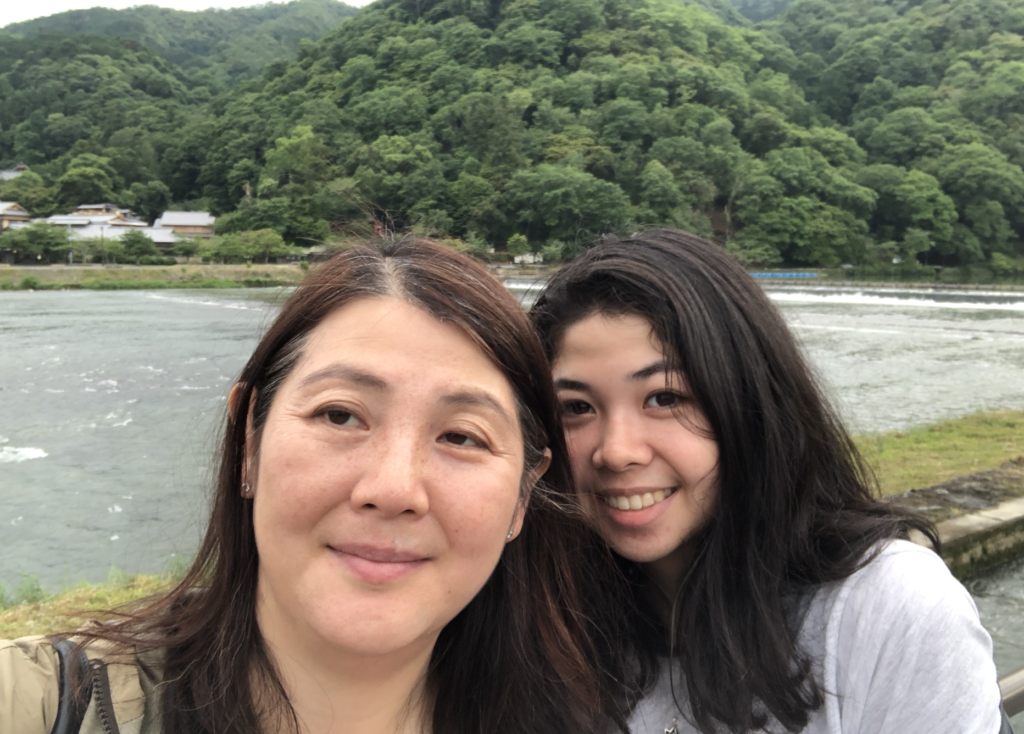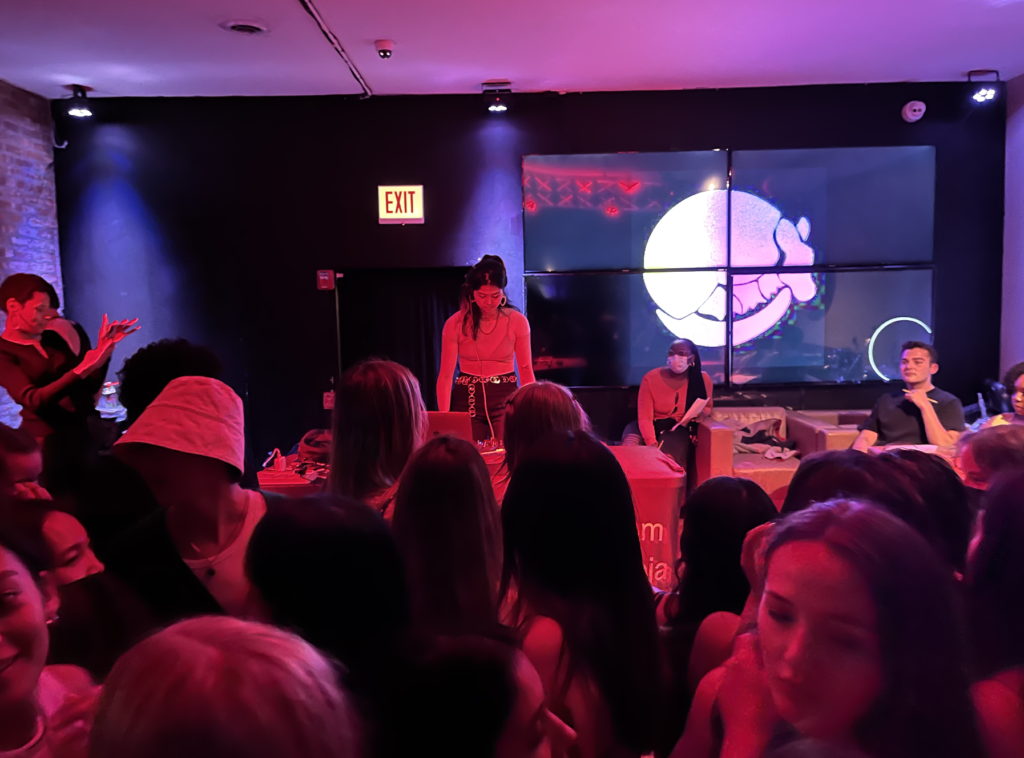Growing up as an Asian-American Jewish person in New York City, my multiethnic heritage granted me glimpses into cultural spaces that don’t often overlap. My favorite childhood outings with my mother were to local Japanese grocery stores and bookstores, and I regularly attended my local synagogue for Hebrew school and Shabbat services. Over the years I have developed a deep appreciation for my mixed background, but there have been times where I have felt a gnawing sense of imposter syndrome in these spaces, as if I don’t truly belong. While traveling in Japan, for instance, locals would sometimes start speaking to me in Japanese, assuming that I, like my mother, spoke the language. I was ashamed by my inability to respond, giving only blank stares and uttering simple apologetic phrases. As a young teen, I became aware that I was often the only nonwhite person in the room at my synagogue. Because my physical appearance is predominantly Asian, subtle looks and underhanded comments from others, albeit rare, made me feel like an outsider to the Jewish community. Aside from my background, given New York City’s bustling and diverse nature, I have grown accustomed to living alongside many different types of people with radically different life experiences. My own experiences, along with the city’s accepting, ‘anything goes’ culture, have led me to view inclusivity as one of my most important values, and one I hope to embody in everything I do.

When starting out as a DJ, my intimidation could not be entirely attributed to my newcomer status. My first time attending a DJ’s Streetbeat set at the radio station, I walked into a room of seven white men. Their kind, welcoming demeanor eased my nerves, but it was hard to shake the feeling that my race and gender made me an outsider. After all, the majority demographic that I encountered at the radio station that night was no coincidence.
By taking charge of the music, DJs hold a lot of power as the person responsible for setting the atmosphere of the party space. Accordingly, female DJs break the narrative established by fraternity life, which heavily influences the college party scene by skewing power towards men. Typically, fraternities host parties in their frat houses while sororities are prohibited from throwing parties. This arrangement discreetly places power in the hands of fraternity members, who can control the layout of the party and are often in charge of distributing drinks. Women may feel pressure to comply with fraternity members because they are visitors in the space and therefore lack the same sense of control.
With a female DJ behind the booth, men no longer dominate the party atmosphere. As an Asian American, I further hope to break the narrative of predominant whiteness within most party spaces at college. I aim to prioritize people of color and women during my sets, and like to showcase female-forward music from around the world, either produced by a woman or featuring feminine vocals. Everyone deserves to party safely and comfortably, and to feel represented by the space around them. I also hope to pave the way for other female, nonwhite, and queer DJs. There were always a few other women in the Streetbeat community, but never any nonwhite women. I remember how intimidating it was to join Streetbeat and hope that my presence in the group encourages other nonwhite women to join. Changing party culture is bigger than any one person, but it starts by showing up in new ways, and giving others the courage to do the same.

This same desire for inclusivity fuels my post-grad aspirations. I fell in love with English literature and creative writing classes at college, so in addition to continuing to DJ on the weekends, I hope to create a more inclusive culture in the publishing industry by becoming a book editor for underrepresented authors. Storytelling through books has a unique ability to share experiences and spread empathy, and my goal as a book editor is to share the stories of those who are too often overlooked by the mainstream.
Pursuing my goals will surely not be easy, requiring perseverance, hard work, and dedication. However, I am willing to put in the work, knowing I am on the right path because my pursuits align with my values. Aside from one’s career path, personal values influence nearly every aspect of life, from relationships to spiritual life to daily routines. When faced with uncertainty or deciding upon next steps, turning to your values can help you determine what to do. In fact, you likely embody your values already in ways you don’t even realize. If you’re not sure what your values are, take a look at what is important to you and the things in your life that you care about the most. Coming into college as a freshman I knew I liked music and wanted to take more English classes, but I couldn’t imagine the aspirations I have now as a DJ and book publisher. By taking a moment to clarify what matters to you the most, you can empower both yourself and those around you to move in accordance with one’s own personal values.

By Lu Poteshman
Lu is a rising senior at Northwestern University, where she studies English Literature with a minor in Art, Theory and Practice. She is passionate about all things music and art, and loves to paint, draw, design things, write creatively, cook and explore in her free time. She is currently working towards her dreams of being a book editor by day and DJ by night.
For over 20 years, the Campus Clipper has been offering awesome student discounts in NYC, from the East Side to Greenwich Village. Along with inspiration, the company offers students a special coupon booklet and the Official Student Guide, which encourages them to discover new places in the city and save money on food, clothing, and services.
At the Campus Clipper, not only do we help our interns learn new skills, make money, and create wonderful e-books, we give them a platform to teach others. Check our website for more student savings and watch our YouTube video showing off some of New York City’s finest students during the Welcome Week of 2015.
Tags: asian american, jewish, music, New York City, partying, publishing industry

